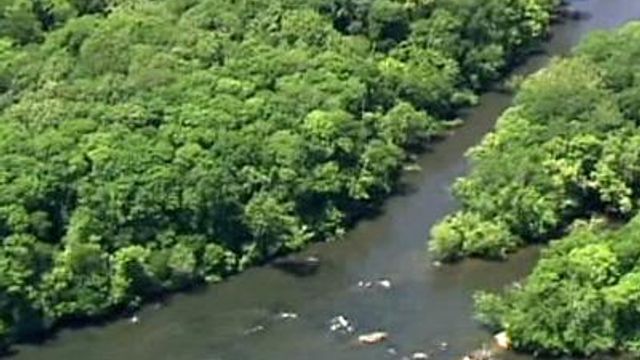Riverside farmers worried over idea to raise Kerr Lake water releases
The Army Corps of Engineers is considering adding 15,000 cubic feet per second to the flow when it releases water into the lower Roanoke River to control levels in Kerr Lake.
Posted — UpdatedHaving water pouring into the river basin faster has some farmers downstream concerned about flooding, especially in Halifax County.
“I think there are a lot of unknowns that we can't put our finger on right now,” farmer Bill Pierce, of Weldon, said.
“Initial modeling indicates there would be an increase of more frequent flooding of the lands,” said Frank Yelverton, with the U.S. Army Corps of Engineers.
Pierce said the flooding will hurt farmers who plant by the river.
Letting more water out at once would push the occasional floods higher onto riverbanks. The floods also would recede more quickly, however, the corps believes. The impetus is to help hardwood seedlings along the riverbanks survive by getting floods over and done with more quickly so the young trees do not stand in water as long.
“What concerns me is the frequency of high water coming up and down,” Pierce said.
Pierce said the faster, deeper flows could also lead to erosion. Some farmers are on board with the idea, however, despite concerns over flooding.
“If you live on the river and work on the river, you're going to have to expect to deal with water. That doesn't bother us,” farmer Alex McLennan said.
McLennan and Doug Temple farm along the river in Scotland Neck. They argue the faster the water comes in, the faster it will go out because the river will be wider during that time.
“Water will run down a 2-inch pipe faster than it will rundown a 1-inch pipe,” Temple said.
While the farmers said they believe increasing the release rate will get the flooding over with faster, others are not so sure.
The Army Corps of Engineers is studying how the proposal would affect farmers, plant and animal life. If the effect is minimal, the project could get started by January.
• Credits
Copyright 2024 by Capitol Broadcasting Company. All rights reserved. This material may not be published, broadcast, rewritten or redistributed.





